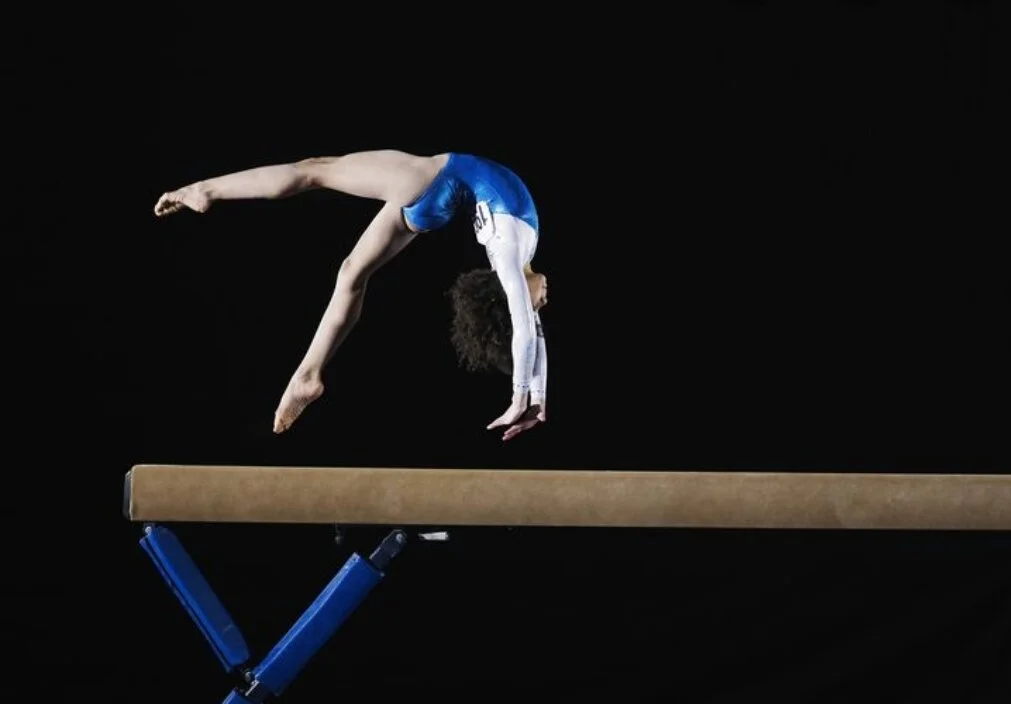Mental Blocks in Gymnasts.
UPDATE!!! REVOLUTIONARY TREATMENT TO BLOCKS IS NOW AVAILABLE!
For a long time blocks were very hard to treat and still are however with new advancements in neuroscience and brain/body techniques we can help athletes move through bocks faster and more effectively than ever before. I am now offering brainspotting to my athletes. 1 session of brainspotting can equate to 6-8 one-hour talk sessions. Of course, there are always limitations, and not everyone will see amazing results immediately, but it has changed the game for me and the athletes I work with.
I started tumbling when I was pretty young and loved it! My tumbling quickly turned into hitting the vault and the bars and I was excelling quickly. Coaches took notice and were ready to start my Olympic training until..
Cortnee White
What is a Mental Block?
Psychological blocking which is also normally called a mental block is the inability to perform a skill that an athlete previously performed with no problems. Athletes report feeling stuck, frozen, blank, or they feel like their brain is fogged.
Why is it happening?
Sports like gymnastics and diving are completely unnatural for our body to perform and our brain doesn't like it either. Flying and twisting through the air puts our brain on high alert! Its job is to protect us and look for threats, and there can be a lot of threats. If we are under stress, fearful, worried, anxious, or injured our brain essentially shuts us down. Our brain is telling us, hey, you got a lot going on and I cannot allow you to do something dangerous right now.
A lot of times the athlete is just unable to perform the skill or has moved too fast into a higher-level skill. This can be fear, self-confidence issues, or mechanical issues. Those blocks can usually be resolved by slowing down and going back to basics.
Gymnast on beam performing blocked skill.
Injuries.
The most common block that I usually see is surrounded by an injury or seeing others be injured. Injuries are trauma both to the body and the mind. I like to put it as we hold onto pain memories. With pain memories we don't forget what happened when we fell, we over-rotated, or saw someone do the same. Like I stated before our brain is now in full protective mode, it does not want you to be hurt again. From those injuries, we also produce stress and anxiety. Our thoughts become consumed with trying to never let it happen again, worrying about every little movement or placement. We might still feel pain and hesitate on going full out, causing the block to have a stronger hold on us. We start to block and freeze because there are a lot of unresolved fears.
“I am scared but not scared of the skill”.
Fear and being scared is a stressful and anxious emotion that ignites our blocks. Most gymnasts explain the fear they have with blocks as "I am scared but not scared of the skill". We usually assume that if an athlete is blocking it is because they are doing a really hard and complicated skill that scares them. While this can be true it is not always the case. As stated above blocks occur on skills that have been done before, usually skills that were quite easy originally. The fear they feel can be stemming from the thought of injury because they are overthinking and putting too much attention on small mechanics causing disruptions. They can fear not being able to do the skill because of how easy it is and the embarrassment and shame that can happen. They can be scared due to dissociating from themselves and the movement and not having body awareness.
Blocks Happen.
Whether it is stress from outside the gym, inside, or a combination of both, the longer it builds the more the athlete tends to make negative attributions about their ability and about themselves. This can drive avoidance of the movement or sport, shame, anger, and feelings of failure. Mental blocks happen, and they happen a lot. You or your athlete are not alone in the burden a mental block can place on you. With some knowledge and understanding, the block can be defeated!
